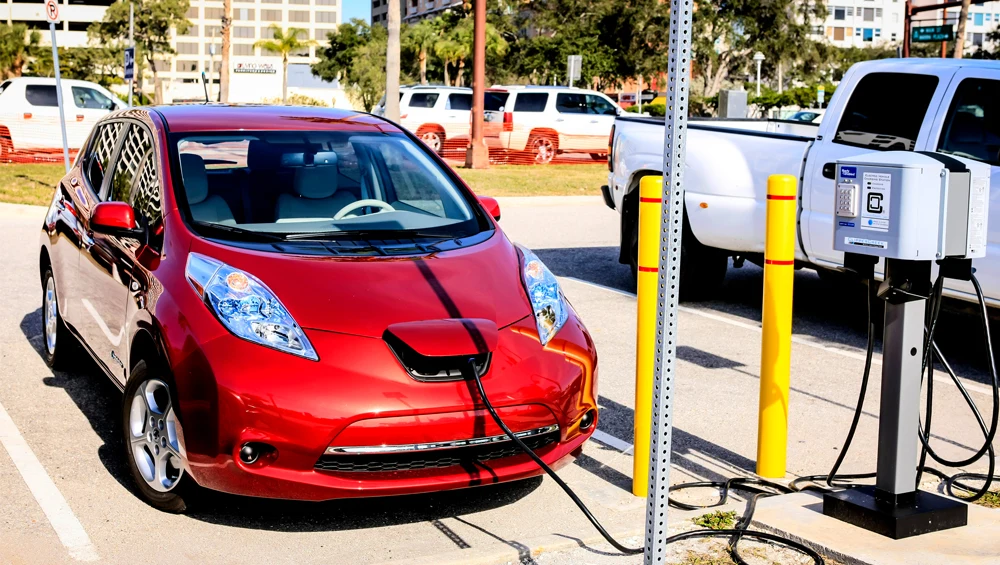
Electric Vehicles: The Future of Sustainable Transportation
As the world accelerates its efforts towards sustainable living, electric vehicles (EVs) are emerging as a powerful force in transforming the transportation landscape. The shift from fossil fuels to electric power is not just a trend—it's a necessity driven by environmental concerns and technological advancements. Online platforms, like Reddit's r/electricvehicles, play a crucial role in this transformation, serving as vibrant communities where EV enthusiasts and owners converge to discuss innovations, share experiences, and advocate for broader adoption.
The Rise of Electric Vehicles
Electric vehicles have seen a meteoric rise in popularity over the past decade. With major automakers like Tesla, Nissan, and Ford leading the charge, EVs are no longer niche products but mainstream alternatives to traditional gasoline-powered cars. The reasons are clear: EVs promise a cleaner, more sustainable future. They produce zero emissions at the tailpipe, reducing the carbon footprint significantly compared to their internal combustion engine counterparts.
This surge in popularity is not confined to any single region. Countries across the globe are adopting policies that favor electric vehicles, with governments offering incentives such as tax breaks, rebates, and free charging stations to encourage consumers to make the switch. For instance, Norway has set an ambitious goal to sell only zero-emission vehicles by 2025, a target that underscores the country's commitment to sustainable transportation.

The Role of Online Communities
The digital age has provided a platform for communities passionate about electric vehicles to flourish. Platforms like Reddit’s r/electricvehicles have become pivotal in spreading awareness and information about EVs. This subreddit serves as a hub for discussions ranging from the latest technological advancements and best practices to user experiences and troubleshooting.
These online communities are instrumental in dispelling myths about electric vehicles, such as concerns over range anxiety and charging infrastructure. By sharing personal stories and data, community members help potential buyers make informed decisions. The collective knowledge available in these forums is invaluable, especially for newcomers navigating the EV landscape.
Technological Innovations Driving the Change
The success of electric vehicles hinges not only on environmental consciousness but also on technological innovations. Battery technology, in particular, has seen significant advancements. Modern EVs boast ranges that rival or even surpass those of traditional vehicles, with some models offering over 300 miles on a single charge. This development addresses one of the primary concerns potential EV buyers have—range anxiety.
Moreover, the expansion of charging infrastructure is making electric vehicles more convenient. Fast-charging networks are proliferating, enabling drivers to recharge their vehicles in a fraction of the time it took just a few years ago. Companies like Tesla with its Supercharger network, and collaborations between automakers and energy companies, are paving the way for an accessible and efficient charging ecosystem.

Environmental Impact
The environmental benefits of electric vehicles are profound. By eliminating tailpipe emissions, EVs help reduce air pollution and greenhouse gas emissions. This is especially critical in urban areas where air quality is a major concern. According to the Environmental Defense Fund, switching to electric vehicles can significantly cut the emissions that contribute to climate change.
Furthermore, as renewable energy sources like solar and wind become more prevalent in electricity generation, the environmental footprint of electric vehicles continues to shrink. Charging an EV with green energy amplifies its environmental benefits, creating a virtuous cycle of sustainability.
Challenges and the Road Ahead
Despite their numerous advantages, electric vehicles face hurdles that need to be addressed. The upfront cost of EVs can still be prohibitive for some consumers, although this is gradually changing as battery prices decrease. Additionally, the disposal and recycling of EV batteries pose environmental challenges that manufacturers are working to solve.
The road ahead for electric vehicles involves continued innovation and policy support. Governments and industries must collaborate to build a comprehensive charging infrastructure and create financial incentives that make EVs accessible to all.

Conclusion
Electric vehicles are more than just a trend; they represent a significant shift towards sustainable transportation. As technology advances and online communities grow, the adoption of EVs will likely continue to rise, bringing us closer to a future where sustainable transportation is the norm rather than the exception. The conversation around electric vehicles will persist, driven by enthusiasts and advocates who envision a cleaner, greener world. By embracing these innovations, society can take a significant step toward mitigating the adverse impacts of climate change and ensuring a healthier planet for future generations.